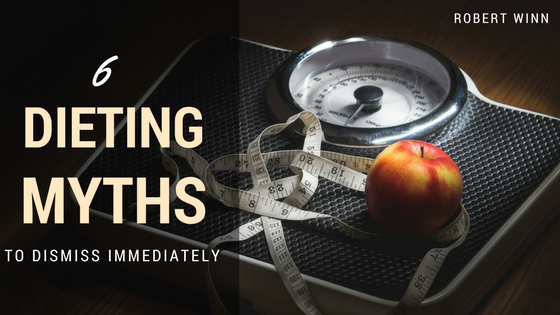We’ve all heard the advice: Cut out pasta, drop candy, ditch butter, avoid gluten, eat four hours before bedtime, never skip breakfast, subsist entirely off of fruity kale shakes and almonds.
There’s no getting around it – the diet industry is tripping over itself to give you advice, and most of it is confusing at best and downright dangerous at worst. For someone looking to lose weight in a healthy, sustainable way, it can be stressful to sift over the conflicting and often incomprehensible information to be found online and in allegedly “reputable” diet books.
Below, I’ve outlined a few glaring myths to dismiss if you encounter them on your weight loss journey.
100 calories of cookies = 100 calories of carrots
The next time you hear someone rattling on about calories, you might want to ask them exactly what a calorie is – and odds are, they won’t be able to tell you. All too often, “calorie” is used as a catchy, vague buzzword in marketing slogans – and few people bother to learn its actual definition. In actuality, a calorie is a measure of energy.
Unfortunately, all calories do not “weigh” equally for someone on a diet. 2000 calories of junk food has a very different impact on weight management than 2000 calories of balanced meals. Different types of calories (i.e., a fat, protein, or carb) undergo different metabolic processes and have a different effect on appetite and weight-regulating hormones.
Eating fats will make you fat.
Put down the margarine! The idea that eating fat will added to your own stored body fat has been largely disproven. As with calories, your fat intake should largely depend on the context of your daily nutrition. Are you eating fatty junk foods packed with sugars, salts, and carbs? Or are you eating protein-packed, low-carb meals that contain healthy fats? A dependence on junk food will undoubtedly contribute to weight gain, but you shouldn’t expect a sudden pattern of weight gain if you balance your diet.
Supplements will help you lose weight.
Many “diet supplements” promise to facilitate weight loss, but you would be hard-pressed to find legitimate scientific backing for any of them. If anything, these pills function better as placebos than weight loss aids: dieters feel more conscious of their daily nutrition, so they tend to eat better and thereby lose weight.
Snacking is bad.
Don’t be afraid to eat a snack if you’re hungry! Snacking periodically throughout the day will help prevent you from binging during meals. Just make sure that you opt for healthy snacks, such as nuts, fruit, or vegetables.
“Diet” foods are better for you.
I’ve already written an entire post about how misleading so-called “health” foods can be, but it’s worth saying again: most “diet” foods are just as bad, if not worse, than regular food offerings in the grocery store. Avoid them at all costs – or at least read the ingredients listed on the back before taking a box home to your kids!
A diet will change your life.
One week of drinking nothing but kale and cucumber shakes may help you drop pounds in the short-term, but you’re likely to gain the weight back again. According to a study published in Obesity Reviews, 85% of those who go on diets are likely to regain the weight they lose over the next year. One diet won’t make a long-term change; instead, you have to embark on a lifestyle shift. Commit to eating balanced, healthy meals, and set up a consistent exercise plan. It’s possible to make a change – but it takes long-term effort and a dedication to eating well.

